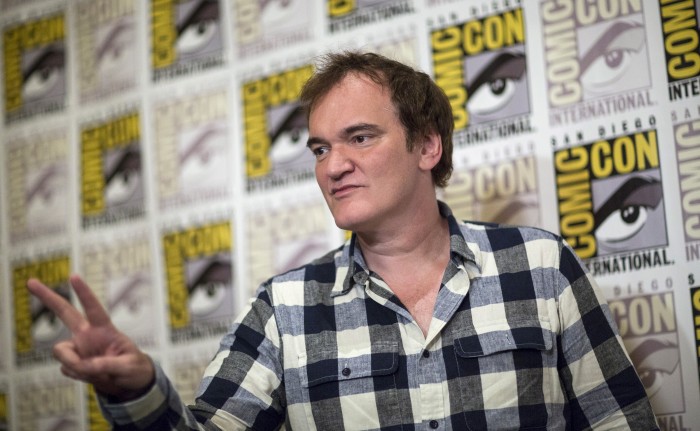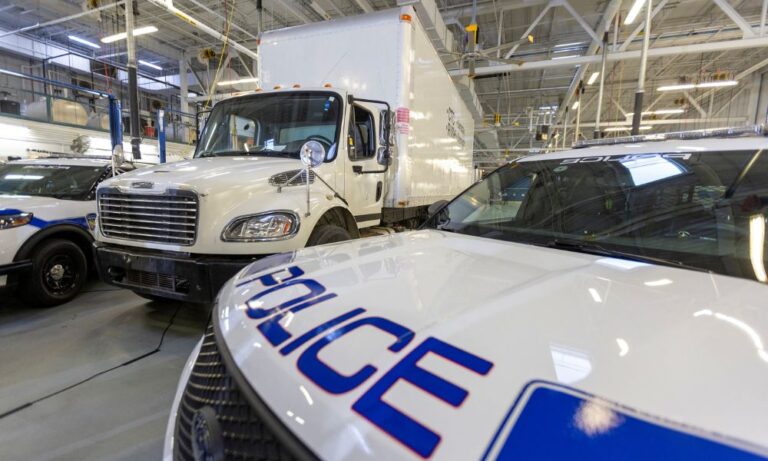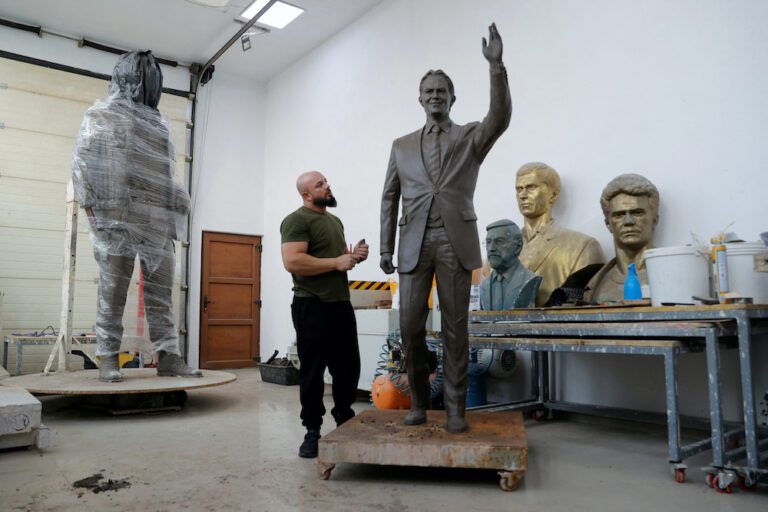Kristin Davis may be best known for playing Charlotte York on Sex and the City, but the 52-year-old actress has focused primarily on humanitarian work over the past decade.
Davis is a Global Ambassador for Oxfam, a patron of the David Sheldrick Wildlife Trust and was announced as a Goodwill Ambassador for the United Nations High Commissioner for Refugees (UNHCR) earlier this year. She has just returned from Bangladesh where she visited Rohingya refugees on behalf of UNHCR.
Davis talks exclusively to MiNDFOOD about the experience.
Why did you go to Bangladesh?
I wanted to go to Bangladesh because of the unprecedented refugee crisis unfolding there. I had been reading about the desperate measures the Rohingya people have been taking to escape Myanmar, and I wanted to see what was going on myself. I wanted to take part and see the aid being delivered by the UN Refugee Agency (UNHCR).
What is the situation there?
Currently we believe that 750,000 people have fled to Bangladesh from the northern part of Myanmar, called the Rakhine State. This is a huge number of people, and most of them have come since violence erupted on August 25, 2017. So this situation is the fastest growing refugee crisis of our time. These people were facing extreme violence and danger to their lives, forcing them to flee their homes. Over half of the refugees are children. Most have fled their homes suddenly with almost nothing, having to find a way to cross over to Bangladesh. Many have been robbed during their journey to safety. Many of the children are severely malnourished. These people are extremely vulnerable and traumatised. Many are in shock. They need all of the basic needs for survival met – shelter, food, and clean water.
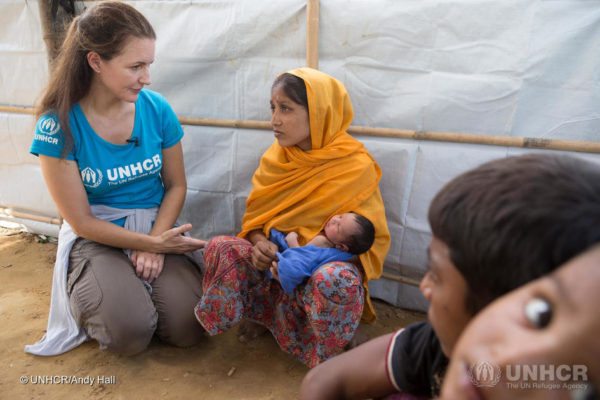
How did you feel meeting refugees with such difficult stories?
I am always incredibly moved and inspired to meet refugees. In the case of the Rohingya refugees, I felt deep sadness and shock to hear about what they have been through. My main purpose as a Goodwill Ambassador is to listen and bear witness to the personal experience of each person I meet who has been forced to flee their home. From the Rohingya refuges I heard horrific stories of homes being burned, people being slaughtered by gunfire and knives and rape. Incredibly shocking and unimaginable experiences were told to me. I met Hamida, and her two-day old son, Hosen, in the UNHCR Transit Center in Kutupalong Camp. She had fled her home in fear, 9 months pregnant and then delivered Hosen on the border on the side of the road after fleeing Myanmar. It’s unimaginable what she has been through. So yes, I felt emotional, but also reassured to know that she is now protected and currently living in a special UNHCR shelter area for extremely vulnerable families.
How can agencies like UNHCR make a difference?
UNHCR and its partners are absolutely making a difference on the ground. First UNHCR gives newly arrived refugees desperately needed food and water, and clothes. They’ve airlifted over 1,500 tonnes of supplies into Bangladesh already. Then the supplies are put together into kits for a family – kits that include 5 blankets, 5 sleeping mats, 2 mosquito nets, 1 solar lamp, 1 tarpaulin, 1 kitchen set, 2 jerry cans for water. They are really life-saving for the refugees who arrive with almost nothing at all. This crisis is among the most difficult and tragic situations UNHCR faces anywhere and whilst UNHCR and its partners are making a difference, it is so clear that more is needed right now. That’s why I am trying to call for more funds, because more money will save lives. Please, go to unrefugees.org.au/rohingya now and do what you can to help Rohingya refugees.
Was it as you expected? What surprised you?
I had seen news reports and of course had been fully briefed by UNHCR’s experts on the ground before going to Bangladesh. I think what surprised me most was looking at the sprawling camp and thinking that in August none of it was there – that the hundreds of thousands of people who have fled have all arrived since August. They arrived with nothing, but what I hadn’t expected was how resilient and brave the refugees were despite their experiences. I found the camp was unexpectedly busy – everywhere, people were so busy building shelters, carrying bamboo poles and tarpaulins over streams and up hills, building toilets, carrying sacks of rice.
Do you really feel there is hope? How can there be?
Everywhere I looked, the Rohingya refugees needed more – they need more fresh water supplies, shelter, food, healthcare, schools, everything. So at one level it can overwhelm you and the scale of it makes it hard to think there is hope. But then, when I saw the UNHCR kits being packed and distributed, when I saw the vulnerable women in pre-built shelters made by UNHCR, when you see that the most vulnerable cases receive attention, when I met the incredible staff on the ground working round the clock to deliver protection and support to these refugees, yes I do think there is hope. Also, when I was talking to the refugees who had been at the camp for a week or two, they felt hope. They have been through unspeakable horrors, but they told me they felt safe and could sleep through the night for the first time in a long time. That gives me hope!
Critics say celebrity visits to see poverty and suffering like this are unhelpful. How do you respond?
I wish, honestly, the world was a place in which crises of this nature didn’t happen, but when it does happen, I wish the media would give it the immediate, necessary and appropriate coverage that it needs. Organisations including UNHCR have Ambassadors to help share stories and raise awareness to the needs of those in crisis situations. Ambassadors use our voices so the stories of those we meet can be heard on a large scale. We work to keep the issues on the global agenda and to raise more funds to help those in need.
What are you hoping will be the impact of your trip?
I hope it generates attention, funds and support to help protect and support the Rohingya refugees. I hope that people reading this are moved to support the Rohingya refugees and donate because they can make a difference.
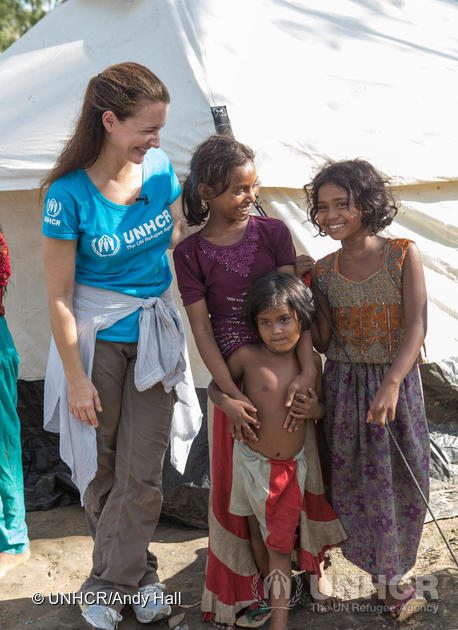
Australia for UNHCR has partnered with other leading NGOs to launch an emergency joint appeal to help people fleeing violence in Myanmar, the vast majority being stateless Rohingya. All donations to Australia for UNHCR will be matched by the Australian Government until 9 December. See unrefugees.org.au/rohingya



